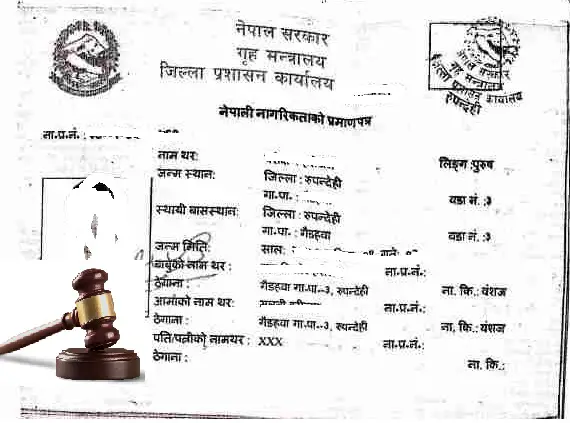Have you ever wondered about the process of obtaining Nepalese citizenship? In this article, we will explore the steps and requirements involved in acquiring citizenship in Nepal.
Whether you have been living in Nepal for an extended period or are considering making it your new home, understanding the process will give you valuable insights and guidance.
From eligibility criteria to document submission, we will provide you with all the information needed to embark on your journey towards Nepalese citizenship. So, let’s get started and discover how you can make Nepal your official home!
How to Obtain Nepalese Citizenship
Welcome to this comprehensive guide on how to obtain Nepalese citizenship! Whether you are a foreigner looking to become a citizen of Nepal or a Nepalese individual seeking to understand the process for various scenarios, this article will provide you with all the information you need.
From birthright citizenship to naturalization, marriage, descent, investment, and adoption, we will explore the eligibility criteria and necessary documentation for each process. So, let’s dive right in!
Eligibility Criteria
Before we delve into the different ways to obtain Nepalese citizenship, let’s first understand the general eligibility criteria that apply to all individuals aspiring to become citizens of Nepal. To be eligible, you must:
- Be at least 16 years old or married, as the minimum age requirement to apply for citizenship is 16 years.
- Have resided in Nepal for a minimum of 15 consecutive years, including the year preceding the application submission.
- Have a good moral character and be of sound mind.
- Be able to speak, read, and write in the Nepali language.
- Show a genuine commitment to the nation, its people, culture, and values.
- Not pose a threat to national security or public interest.
- Provide accurate and truthful information during the application process.
Now that we understand the general eligibility criteria, let’s explore the different paths to obtaining Nepalese citizenship.

Birthright Citizenship
If either of your parents is a Nepalese citizen at the time of your birth, you are eligible for Nepalese citizenship by birth. This means that if you are born to at least one Nepalese citizen parent, you automatically inherit citizenship at birth. However, it is important to note that you must provide sufficient documentation and evidence to support your claim for citizenship by birth.
Naturalization Process
If you are a foreign national who has resided in Nepal for a significant period and wishes to become a Nepalese citizen, you may be eligible for citizenship through naturalization. The naturalization process involves a series of steps and requirements to be met:
- Residency Requirement: As mentioned earlier, a minimum of 15 consecutive years of residency in Nepal, including the year preceding the application submission, is required.
- Economic Contribution: You must demonstrate a remarkable contribution to the economic, educational, social, or cultural development of Nepal.
- Nepali Language Proficiency: You are expected to be fluent in speaking, reading, and writing in the Nepali language.
- Renunciation of Previous Nationality: Before being granted Nepalese citizenship, you must renounce your previous nationality.
- Character Evaluation: A thorough character assessment will be conducted to ensure you possess good moral conduct and have not been involved in any criminal activities.
- Oath of Allegiance: Finally, you will be required to take an oath of allegiance to the nation.
Acquisition by Marriage
If you are married to a Nepalese citizen, you can apply for Nepalese citizenship by marriage. To be eligible for this process, you must meet the following conditions:
- A legally recognized marriage to a Nepalese citizen.
- A minimum of 7 years of continuous marriage.
- Residency Requirement: You must have resided in Nepal for a minimum of 5 consecutive years preceding the application submission.
- Good Moral Character: Similar to other processes, you must demonstrate a good moral character.
- Nepali Language Proficiency: Proficiency in speaking, reading, and writing in Nepali is essential.
Citizenship by Descent
If your father or mother is a Nepalese citizen, you are eligible to acquire Nepalese citizenship by descent. The following conditions must be met:
- At least one of your parents must be a Nepalese citizen.
- Proof of parent’s citizenship must be provided.
- Residency Requirement: You must have resided in Nepal for at least 3 consecutive years preceding the application submission.
- Good Moral Character: As always, a good moral character is a prerequisite.
Investment Citizenship
Nepal also offers the opportunity to obtain citizenship through investment. This option allows individuals who have made significant financial investments in Nepal to apply for Nepalese citizenship. The specific criteria and investment amounts required may vary, so it is advisable to consult with the relevant authorities or legal experts for the most up-to-date information.
Citizenship by Adoption
If you are foreign-born and have been legally adopted by a Nepalese citizen or couple, you can apply for Nepalese citizenship by adoption. The following conditions must be met:
- The adoption must be completed in accordance with Nepalese adoption laws and regulations.
- The adoptive parents must be Nepalese citizens.
- Residency Requirement: You must have resided in Nepal for a certain period following the adoption, which may vary depending on the specific circumstances.
- Legal Documentation: Documentation proving the legality of the adoption must be provided.
Renunciation of Other Nationality
Before being granted Nepalese citizenship, it is necessary to renounce your previous nationality. This requirement applies to all individuals applying for Nepalese citizenship, regardless of the process through which they are obtaining it. Renouncing your previous nationality demonstrates your commitment and loyalty to Nepal as your sole country of citizenship.
Documentation Required
No matter which process you choose to obtain Nepalese citizenship, certain documentation will be required. The specific documents may vary depending on the process and personal circumstances, but here are some commonly requested documents:
- Proof of Identity: This may include a valid passport, birth certificate, or any other form of government-issued identification.
- Proof of Residence: Documents such as residential permits, rental agreements, or utility bills can serve as proof of residency.
- Marriage Certificate: If applying for citizenship by marriage, a legally recognized marriage certificate will be required.
- Proof of Parent’s Citizenship: In the case of citizenship by descent, documents proving the Nepalese citizenship of the parent(s) will be necessary.
- Adoption Documents: For citizenship by adoption, legal adoption documents must be provided.
- Educational Qualification Certificates: Some processes may require the submission of educational qualification certificates.
- Economic Contribution Evidence: If applying for citizenship through economic contribution, relevant documentation proving your contribution will be necessary.
- Character References: Letters of reference from reputable individuals in the community may be required to assess your character.
- Language Proficiency Certification: For processes that require Nepali language proficiency, a language proficiency certificate may be necessary.
Application Process
Once you have gathered all the necessary documentation, it is time to begin the application process. The specific steps and procedures may vary depending on the process through which you are obtaining Nepalese citizenship. It is recommended to contact the appropriate government offices or seek legal assistance to ensure you are following the correct process and submitting all required documents accurately.
In conclusion, obtaining Nepalese citizenship can be achieved through various avenues such as birthright, naturalization, marriage, descent, investment, and adoption. Each process has its own eligibility criteria and documentation requirements.
It is important to carefully review the specific requirements and consult with the relevant authorities or legal experts to ensure a smooth application process. By meeting the necessary criteria, providing accurate documentation, and demonstrating your commitment to Nepal, you can embark on a path towards acquiring Nepalese citizenship. Good luck on your journey!
